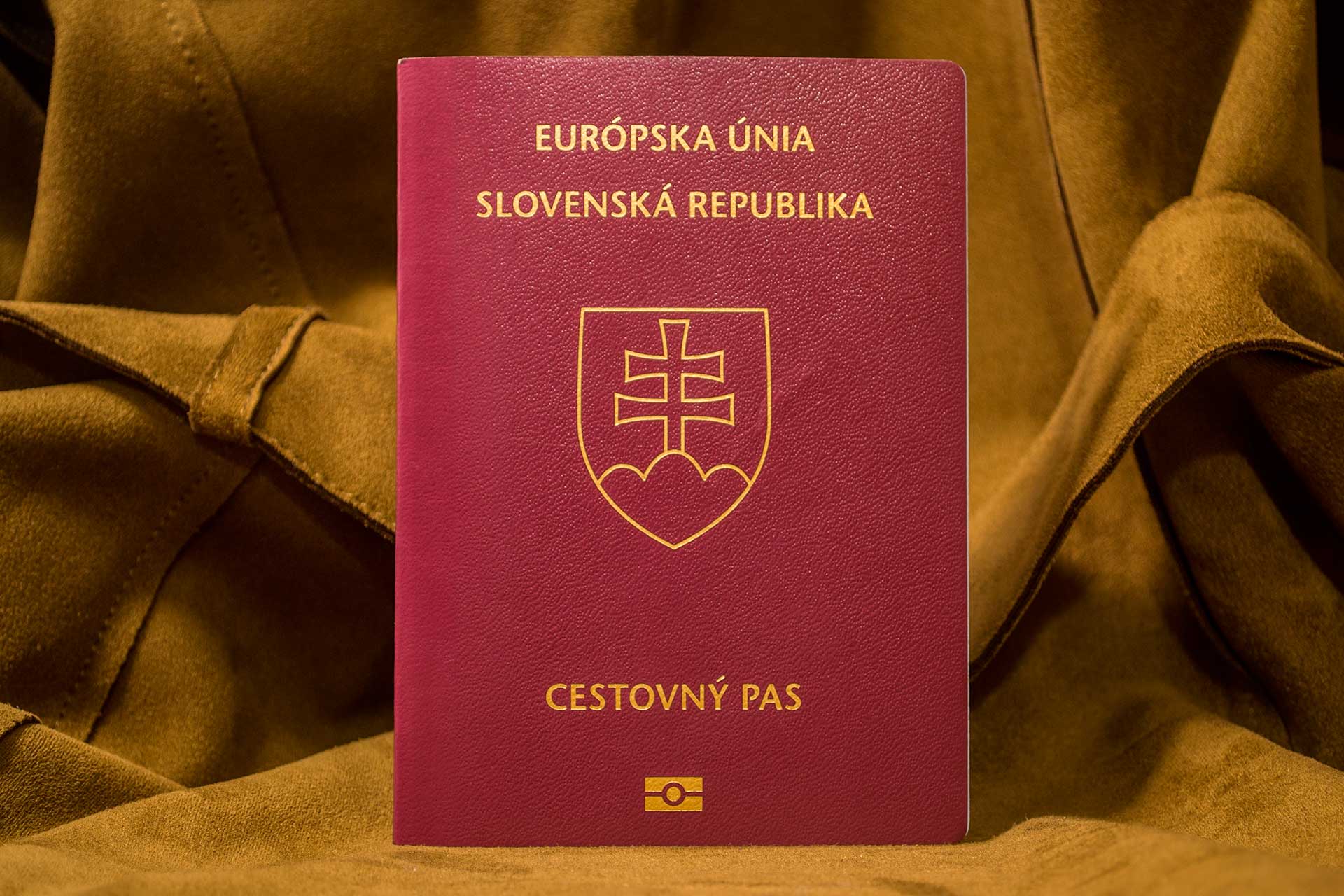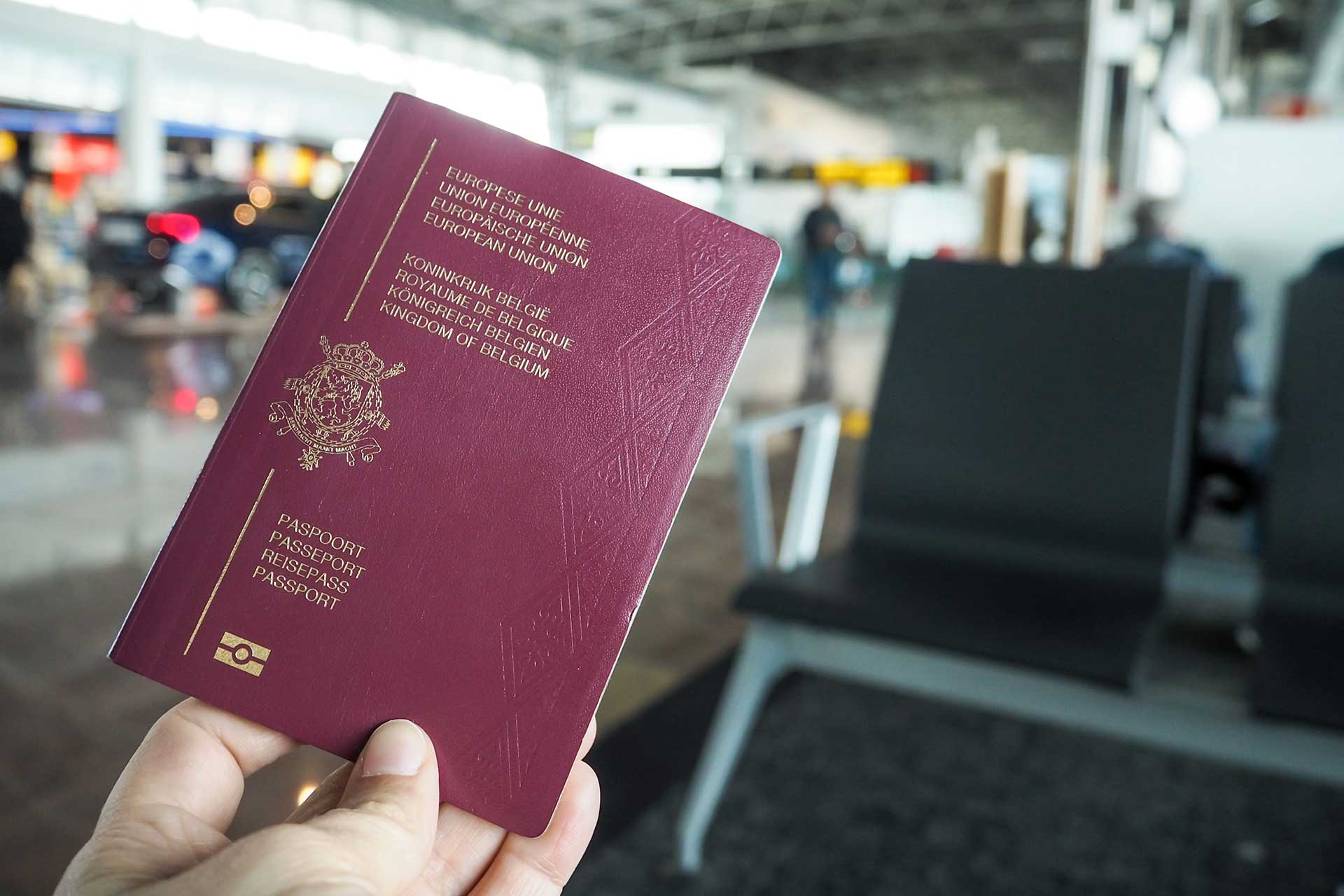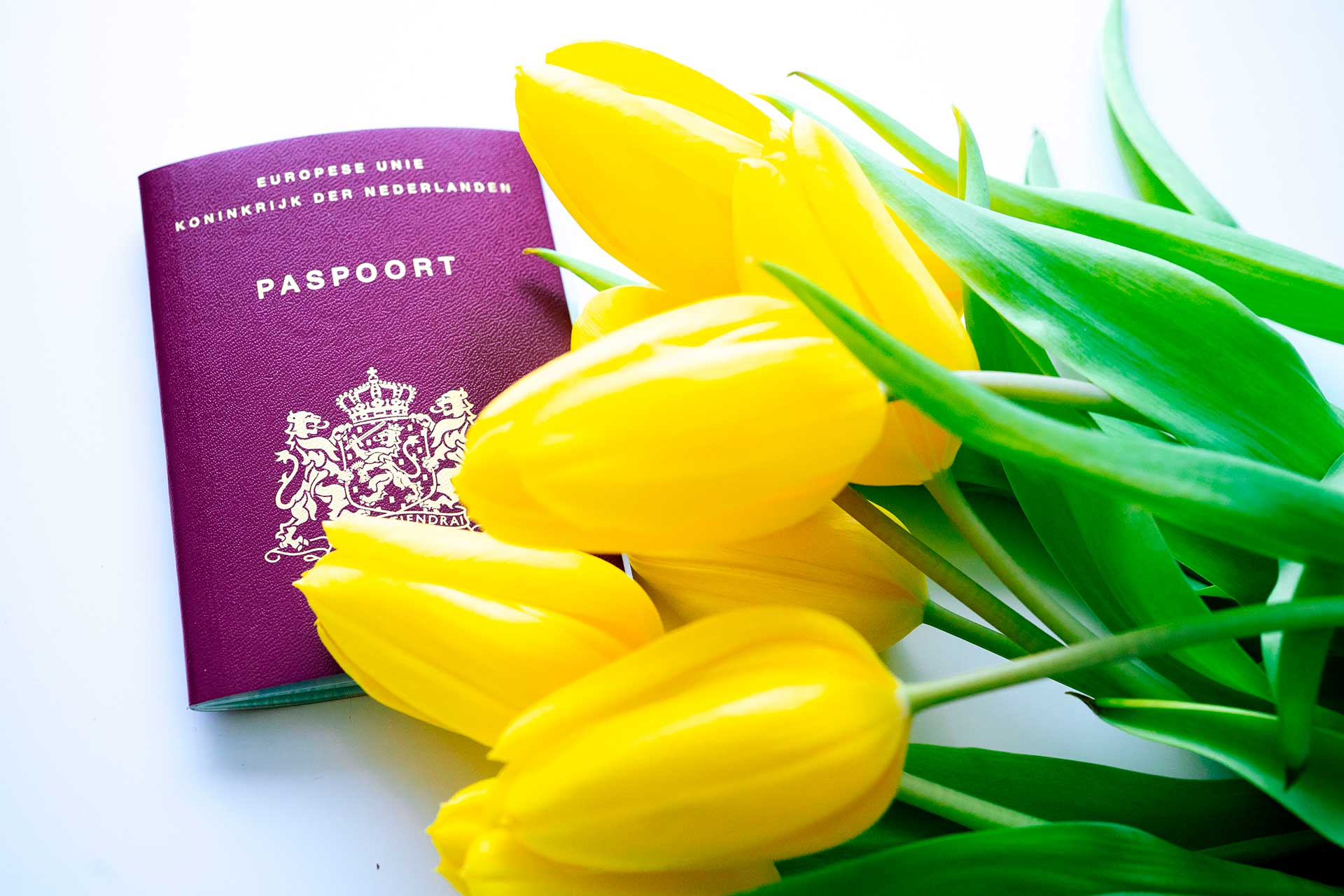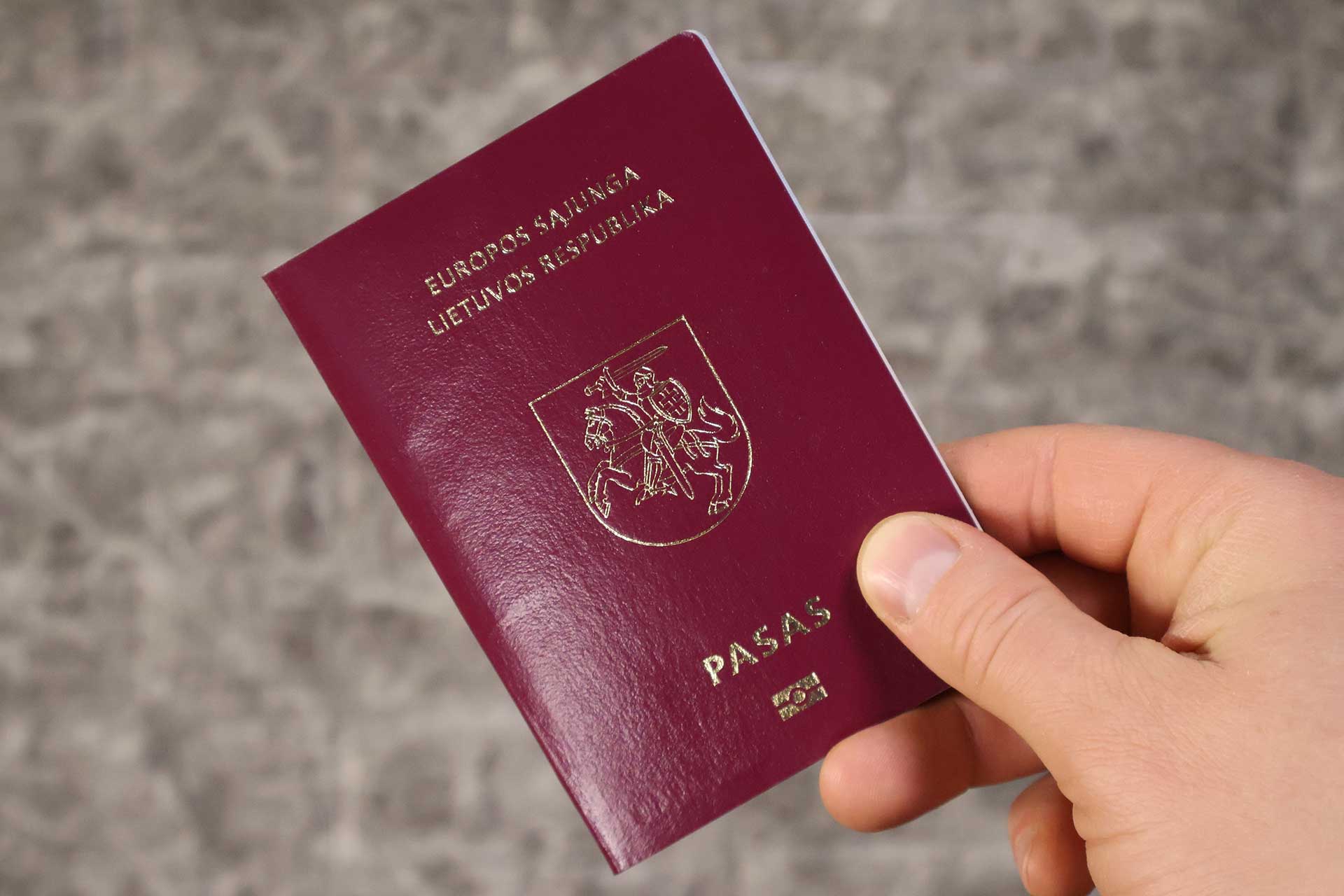- Advantages of Irish citizenship
- Main ways of obtaining Irish citizenship
- Requirements and procedure for obtaining Irish citizenship
- How much time and money it takes to obtain Irish citizenship
- What doesn't work: how you can't get an Irish passport
- Dual citizenship in Ireland: whether it is allowed to hold more than one passport
- Where it is quicker and easier to obtain a second passport: an overview of alternatives
Irish citizenship can be obtained by applicants who meet the legal requirements of residency, knowledge of the national language and means of residence. Additional conditions are law-abidingness and sufficient integration into society. The Irish passport is automatically granted to people born on the territory of Ireland (under certain conditions).
Also, the status can be granted to foreign citizens born outside the state, if this fact was recorded in the Book of Registration of Births Abroad at the Irish diplomatic mission. The right of registration is regulated by the provisions of the Constitution of the country and the Law “On Citizenship”, where there are three ways of obtaining an Irish passport - by birth, descent and naturalization.
The most common method of citizenship is naturalization, which is available to all categories of applicants. Immigrants choose to move to Ireland for several reasons, including the possibility of visa-free travel, a developed economy, a vast labor market, a high standard of living and an English-speaking social environment.
Advantages of Irish citizenship
Ireland is a member of the European Union, which gives its citizens the right to move freely within the territory of the association and travel without a visa to more than 180 countries around the world. Other advantages that contribute to the decision to immigrate to this country are as follows:
- Ireland's economy is one of the fastest growing in the EU;
- the local business environment provides favorable conditions for starting and running a business;
- the labor market is regularly replenished with new jobs, with Irish citizens having priority in high-paying vacancies;
- school education is free of charge, as well as education in prestigious Irish and EU universities on a preferential and sometimes free of charge basis;
- the health care system guarantees high quality care, which is financed by state taxation (health insurance is not compulsory in the country);
- the social security and services sector provides vulnerable people with all the assistance and protection they need;
- all citizens have access to a variety of tax benefits;
- Irish passport holders can purchase real estate in the territory of the state and the EU without the need to obtain additional permits;
- English is the official language in Ireland, which simplifies communication with the local population.
In order to move to Ireland legally, you should consider all available immigration options and choose the best one among them. By signing up for a free consultation with the company's specialists, you will be able to learn about all the ways of legalizing your status in the European Union.
Main ways of obtaining Irish citizenship
Until January 1, 2005, all those who were born on the territory of Ireland, automatically became citizens of the country. After changes in the legislation, the “right of soil” was abolished. In 2026, there are only four ways to become an Irish citizen, we will look at them in detail below.
Naturalization
Foreigners who have been in the country legally for the statutory period of residence can acquire Irish citizenship by submitting a written application to the office of the Immigration Service Delivery (ISD - Immigration Service Delivery). It is possible to reside legally in the territory of the state with a residence permit issued on one of the following grounds:
- retirement;
- employment;
- entrepreneurial activity;
- education;
- volunteering;
- religious activities;
- family reunification;
- refugee or subsidiary protection status.
All applicants seeking an Irish passport must fulfill the following conditions:
- be eighteen years of age;
- have no criminal record or problems with the law;
- have lived in Ireland for 5 years within the last 9 years;
- be financially able to support yourself and your family (if applicable);
- prove their intentions to remain in Ireland after obtaining a local passport.
Children may also qualify for Irish citizenship if one of these conditions is met:
- one of the parents became an Irish citizen through naturalization;
- the child was born in the territory of the country after January 1, 2005 and was not entitled to receive the status of a citizen automatically, but has lived in Ireland for 3 years;
- the minor is of Irish origin.
Immigrants married or in partnership with Irish citizens are eligible to apply for naturalization after 3 years of cohabitation and a similar period of stay in the state. There is also a residency requirement of 3 years for foreigners who have been granted refugee status.
Birth
The law provides for the granting of citizenship to people born or adopted in Ireland before January 1, 2005 and their children. Those born after this date may also be granted an Irish passport if they are not eligible for citizenship of another state or have met all the conditions for standard naturalization.
Investment
In Ireland there are two immigration programs for foreign citizens who wish to invest financial resources in the economy of the state or open their own business there. Thus, it is possible to obtain residency and later citizenship of the country. Investment implies the following options for investing personal funds:
- 1 million EUR for a minimum of 3 years in an Irish company or investment fund approved by the Central Bank of the State;
- 2 million EUR for 3 years minimum to a real estate investment fund whose shares are listed on the Irish Stock Exchange;
- EUR 500,000 in the form of a charitable contribution to fund a community service project in the field of sport, culture, education, arts or health.
At the moment the program for immigrant investors has been suspended and the conditions of the new one have not been announced yet. However, foreign citizens can apply for a residence permit for aspiring entrepreneurs and founders of startup companies implementing innovative business ideas. The amount of minimum financing must be 50,000 EUR or more.
Repatriation
Foreign-born applicants who have an ancestor born in Ireland are eligible for Irish citizenship. The status can be granted to descendants up to and including the second degree, for which it is necessary to register the fact of birth in the Book of Births Abroad.
Get EU citizenship fast and easily
Learn how to become an EU citizen through simplified programs
Requirements and procedure for obtaining Irish citizenship
Applying for Irish citizenship is much like similar procedures in other countries, but its essential difference lies in the method of consideration of such applications. The Immigration Service uses a “scorecard” system when analyzing the documentation provided.
The ISD website has a citizenship guide that explains how many points are awarded to applicants for different types of documents. The basic file includes:
- application for citizenship;
- a certified color copy of the biometric passport page;
- official proof of residence in Ireland for 5 years (separate documents for each year).
Evidence of a foreign national's residence on the territory of Ireland includes:
- certificate of employment;
- statement of annual contribution to the Department of Social Security;
- telephone or utility bills;
- a rental agreement;
- mortgage payment statements;
- bank statements.
Depending on individual circumstances, the dossier may be supplemented with birth certificates, marriage certificates or proof of residence in partnership with an Irish citizen for the required period. All documents not in English must be translated by a certified translator and notarized.
Since naturalization is the most common way of obtaining Irish citizenship, we will look at it step-by-step. To enter the territory of the state, immigrants from some countries may need a national visa, allowing them to later apply for a residence permit. The step-by-step process of applying for an Irish passport is as follows:
- Obtaining a residence permit. Non-EU and non-European Economic Area nationals should go to the Immigration Service upon arrival in Ireland to apply for an Irish residence permit. Foreigners applying for the first time make an appointment via an online service. The waiting time is usually 2-3 weeks. The residence permit card will be delivered by post. The validity period of the residence permit depends on the basis, but in most cases does not exceed 21 months.
- Registration. After obtaining a residence permit, foreign citizens register at the place of residence, and in case of its change inform the registration official about this fact within 48 hours from the moment of moving. The registration certificate is issued at the county administration.
- Renewal of the residence permit card. You can apply to the immigration service to extend the validity of the residence permit card not earlier than 12 months before the current permit is canceled. To do this, you need to fill out an online application and upload a package of documents confirming the relevance of the basis on which the first card was issued. As a rule, the extension is carried out for a period of up to two years.
- Obtaining permanent residence in Ireland. Permanent residence (WCATT - without condition as to time) in the country is a permit to stay without time limitation and is issued to holders of a residence permit card after 8 years of legal residence in Ireland. The status of permanent resident is also the basis for granting citizenship through the naturalization procedure.
- Submission of application for citizenship. The application for an Irish passport can be completed online or in person at an Immigration Service office. The application must be supplemented with the most complete and comprehensive package of documents. If necessary, the service staff may ask to supplement the file or clarify certain information. After acceptance of the application, you will be given its number. In case of a positive response, the ISD employee will inform you about it, ask you to pay the certification fee and send the residence permit card to the service office.
- Going through the citizenship ceremony. During the citizenship ceremony you must take an oath of allegiance to Ireland, after which you will be issued a Certificate of Naturalization. This document is required so that the competent authorities can check your status when applying for an Irish passport.
- Obtaining internal documents of the country. You can apply for your first Irish passport through the Passport Online service, in person at a passport office or by mail. When applying remotely, the applicant must send the original documents to the competent authority for processing.
You can apply for passports for all family members using the “Family Application” option, which allows you to submit up to 4 applications at a time (for which there is an additional fee). You will be given your case number to track its status. You will need to sign it at the time you receive your passport.
You can legalize your status in Ireland much more easily by obtaining citizenship of any EU country. Simplified immigration programs in some EU states allow you to apply for a second passport in 4-14 months. Find out more about this during a free consultation.
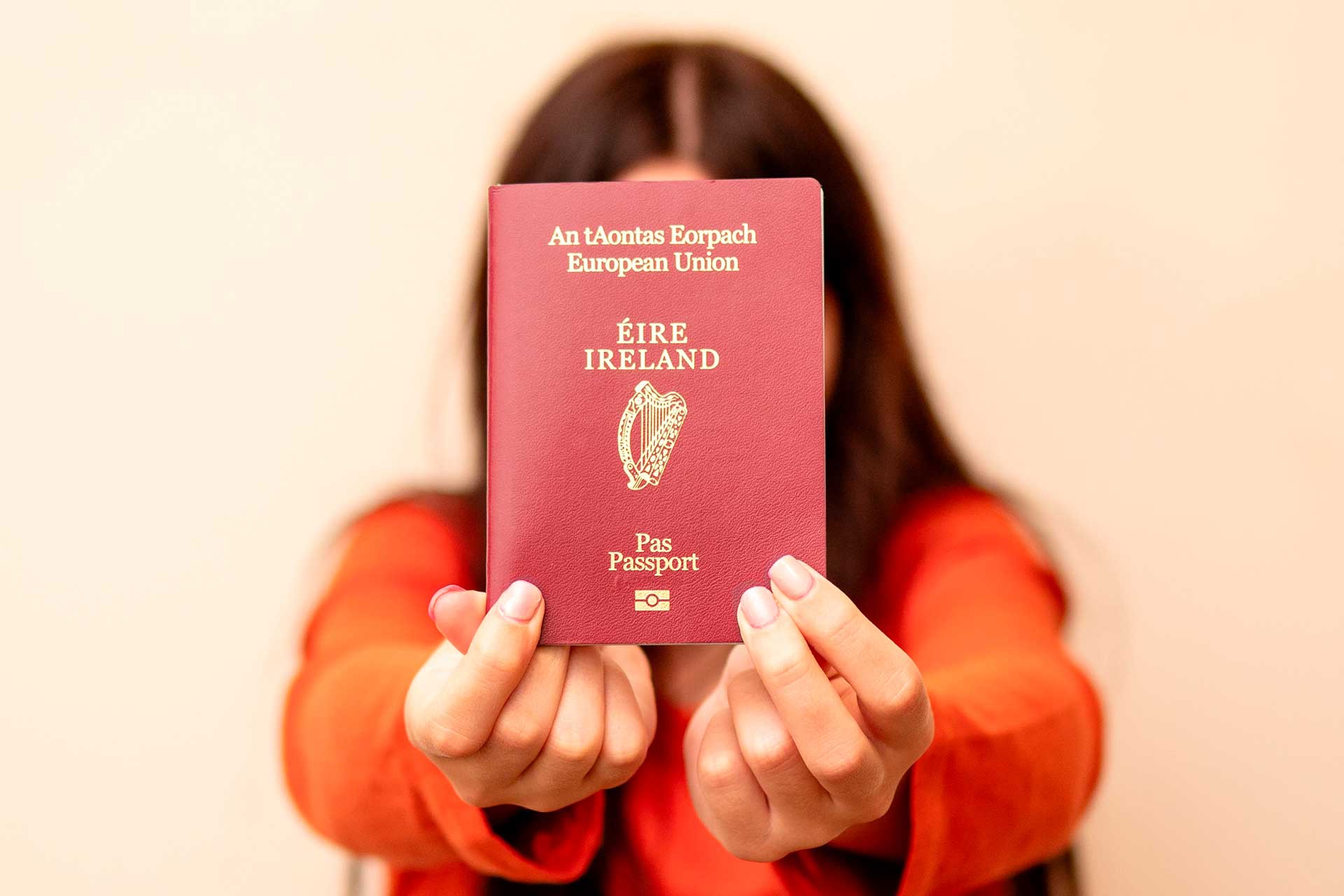
How much time and money it takes to obtain Irish citizenship
Depending on the method of obtaining Irish citizenship, the time and cost of the procedure may be different. Next, let's look at how much time and money it takes to acquire an Irish passport by different ways.
Naturalization
The first document you need to obtain for a long and legal stay in the country is a residence permit. Its cost is 300 EUR, but the card is free of charge for children under the age of 18, spouses of Irish citizens, refugees and persons under subsidiary protection, as well as participants of the family reunification program.
Renewal also costs 300 EUR and takes up to 12 weeks, the new card will be delivered within 10-15 working days. Application for citizenship is subject to a fee of 175 EUR. Stateless persons and refugees are exempt from this fee.
The processing period takes up to 19 months. In case of a positive decision, it may be required to pay an additional fee of 950 EUR for certification of an adult, 200 EUR for minors and widows/widowers of Irish citizens. Certification of refugees and stateless persons is free of charge.
Repatriation
The first step of the repatriation procedure is to register the applicant's birth abroad. The application is done online and is completed by paying a fee of 278 EUR for adults and 153 EUR for children - this amount includes the cost of mailing and processing of documents. The processing period is 9 months.
Investment
The registration fee for granting a residence permit to investors is 1,500 EUR, but they also bear the costs associated with registering a business in Ireland. The total amount of fees varies depending on individual circumstances, and the timeframe for obtaining documents depends on the workload of the authorized bodies.
Domestic documents for adult citizens are issued for 10 years, processing applications and production takes about 8 weeks excluding shipping time. “Family application” costs 16 EUR, the price of a standard passport with 34 pages and a large passport with 66 pages depends on the method of application:
- by online application - 75 EUR and 105 EUR (+15 EUR shipping fee if you are abroad);
- by mail - 80 EUR and 110 EUR (+9.50 EUR fee);
- in person at the passport office - 95 EUR and 125 EUR.
Get EU citizenship under a simplified procedure
Default Description

What doesn't work: how you can't get an Irish passport
Despite the fact that the legislation of Ireland clearly regulates all available ways of obtaining a passport, numerous myths about methods of simplifying the procedure are common among those wishing to move to the territory of the state. The most common are the following misconceptions:
- An Irish passport can be bought.
Buying a ready-made passport is illegal in all countries of the world - in most cases it is a criminal offense.
- Citizenship can be obtained automatically if you have Irish roots.
Some categories of applicants can indeed obtain the status of a citizen provided that the closest relatives had it or were born on the territory of the country. This fact will need to be proved by documentary evidence in accordance with the requirements of the legislation.
- You can become a citizen of Ireland for investing in the economy of the country.
The program for immigrant investors, which was suspended in 2024, allowed to obtain only a residence permit in the country, but did not guarantee citizenship. The current program for startups also allows only a residence permit.
- An Irish passport can be obtained with a child born in Ireland.
According to changes in the law and the Constitution, children born on the territory of Ireland are not automatically granted status and only in some cases can apply for citizenship. And even if the child has a passport, the parents do not immediately become citizens of the country.
When studying the advantages and disadvantages of a particular state, as well as the possibilities of moving, one should not rely on information from unverified sources. Reviews of immigrants who have obtained citizenship in the European Union show that the most reliable information about acquiring an EU passport is given in the legislation of the country of interest. Therefore, to avoid mistakes, it is worth using the services of immigration specialists who have extensive experience in this area.
To choose the best way to legally move to Ireland, get the support of international law lawyers who will analyze your individual circumstances and help in the immigration process.
Dual citizenship in Ireland: whether it is allowed to hold more than one passport
In Ireland it is allowed to have a second citizenship - this possibility is enshrined in the legislation of the country. Consequently, in the process of naturalization you do not have to renounce the status in your home country. Most European Union states also allow you to hold a second passport, and there is a tendency to relax policies on dual and multiple citizenship where they are still prohibited.
Where it is quicker and easier to obtain a second passport: an overview of alternatives
To live in Ireland legally, it is not necessary to obtain its passport, it is enough to have EU citizenship. According to the Free Movement Directive, EU citizens have the right to live and work in any state of the association without the need to obtain a residence permit. To stay in another country for longer than 90 days it is enough to simply register your place of residence.
The EU passport is available on simplified conditions in Slovenia, Bulgaria and Romania. With the help of immigration specialists, you can become a full EU citizen in up to 14 months without having to comply with the residency period, language and integration tests. Sign up for a free consultation to find out more.

Mark Gartman
Migration lawyer
The lawyer of Futurepassports company, which specializes in international law. Advises on immigration issues and helps you find the best options to quickly obtain citizenship in EU countries.
“Immigration is not just a journey from one place to another, it is a journey from who you were to who you can become.”
